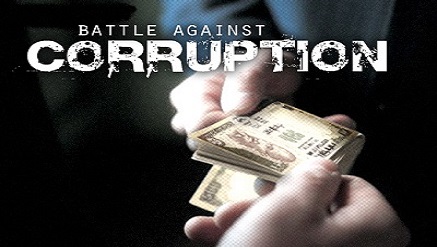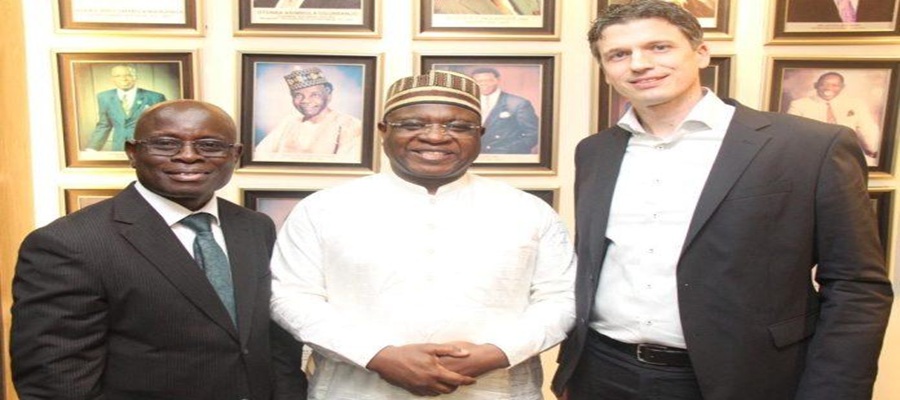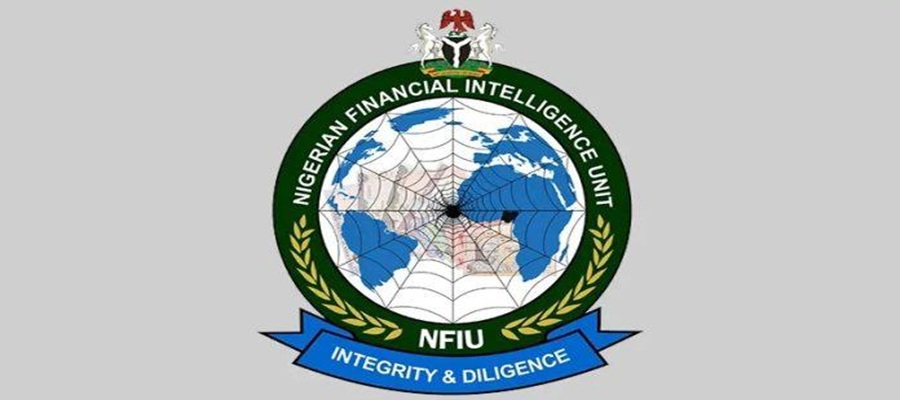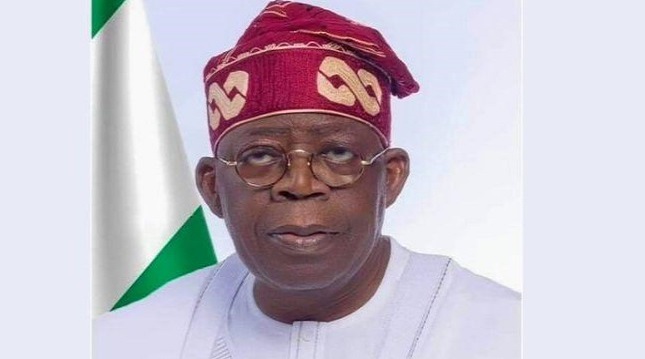News
US Embassy Officials Aid Corruption in Nigeria- Report

A recent report by the Council on Foreign Relations says that despite the United States’ government efforts to combat illicit finance, poor governance, and violent extremism in Nigeria and the world at large, US embassy officials in the country have neglected that for personal gains.
A report authored by Matthew T. Page, entitled ‘Improving U.S. Anti-corruption Policy in Nigeria’ explained that sequel to Muhammadu Buhari’s 2015 presidential election victory, senior US policymakers saw an opportunity to support his aggressive efforts in waging war against corruption in the country.
Page noted that systemic corruption has continued to threaten democracy and good governance in Nigeria.
He blamed decades of “unchecked corruption” for the country’s failure to handle its internal challenges, particularly the Boko Haram insurgency that has killed so many people in the north east.
He said corruption takes many forms in Nigeria, ranging from oil theft, procurement fraud and the misuse of slush funds called “security votes”.
“US anti-corruption policy continues to be ineffective in Nigeria for four reasons,” Page said.
“First, the interests of senior US policy makers and working-level officials diverge. President Barack Obama, Secretary of State John Kerry, Attorney General Loretta Lynch, and Treasury Secretary Jacob Lew have defined anti-corruption efforts as a U.S. policy priority in Nigeria; they see it as part of a global effort to combat illicit finance, poor governance, and violent extremism.
“Yet officials serving at the U.S. Embassy in Abuja — diplomats, military liaisons, and intelligence officers — are mainly concerned with cultivating strong relationships with a wide range of elites, including those complicit in corruption.
“As a result, U.S. anti-corruption policy remains broad-based and untargeted, centred on modest assistance programmes for police investigators and civil society watchdogs.
“Second, U.S. officials are not using existing tools — such as consular databases, local law enforcement records, or online searches to conduct basic due diligence — to identify and avoid enabling corrupt officials.
“As one example, the U.S. Agency for International Development (USAID) funds a rice cultivation project owned by a former attorney general whom the United States sanctioned for corruption in 2010. In April 2016, the U.S. ambassador and USAID officials visited and toured the farm with the owner.
“Third, the anti-corruption work of U.S. law enforcement agencies is under-resourced given the size and scope of corruption in Nigeria, its destructive impact on U.S. policy interests, and its role in fuelling illegal financial transactions in the United States and Europe.
“Although the FBI’s International Corruption Unit recently tripled in size, its worldwide focus, heavy case loads, and long prosecution time lines mean that it can only investigate a handful of the many potential cases involving corrupt Nigerian elites.
“Fourth, as with other policy efforts, anti-corruption action is hindered by inter-agency divides. The U.S. Department of State, Department of Justice, Department of the Treasury, and the U.S. intelligence community rarely collaborate to combat corruption in Nigeria.
“For example, the state department and the intelligence community do not routinely provide tips, background information, or expert advice to justice department investigators working to locate and seize assets stolen by Nigerian kleptocrats. Further, frequent personnel turnover has hindered attempts by some working-level officials to improve communication and policy coordination.”
As part of his recommendations, Page said an inter-agency working group on Nigerian kleptocracy be formed.
He advocated information sharing and improved coordination between Washington and the U.S. Embassy in Abuja, as well as among policymakers, law enforcement, and the U.S. intelligence community.
He also called for the establishment of a permanent FBI special agent corruption investigator position at the U.S. Embassy in Abuja.
“In doing so, Washington would send a clear signal that it is upping its anti-corruption commitments and moving away from its hitherto non-confrontational approach,” he said.
“Though subordinate to the U.S. legal attaché in Abuja, this investigator would operate free from diplomatic interference in support of the International Corruption Unit at FBI headquarters.
“Collaborating closely with the EFCC, this investigator would be able to provide Washington with unbiased reporting on corrupt individuals. The United States should also encourage the EFCC to field a senior liaison at the Nigerian Embassy in Washington, DC, to enhance information sharing.”
News
NGX Unveils Net-Zero Plan for Greener Capital Market

Nigerian Exchange Limited (NGX) has launched the NGX Net-Zero Programme to guide listed companies toward clear carbon reduction pathways and enhanced climate disclosures aligned with global investor standards.

NGX
The high-level launch engaged chief executives of quoted firms alongside development partners including German Investment Corporation KfW, DEG, and African Foresight Group (AFG), NGX’s implementation partner. Issuers and investors discussed financing decarbonisation, sustainability practices, and attracting climate-aligned capital.
NGX Group Chairman Dr Umaru Kwairanga described the initiative as concrete climate action, commending partners for two years of groundwork. “Today marks leadership and decisive action. Climate change has become a core business imperative, with capital markets mobilising capital and setting standards,” Kwairanga said.
He positioned NGX Net-Zero to support emissions measurement, disclosure, capacity building, and sustainable finance access, urging CEOs to embrace it strategically rather than as compliance. Kwairanga reaffirmed NGX’s goal to make Nigeria’s capital market Africa’s green finance hub.
Group CEO Temi Popoola called climate action a business imperative, noting sustainability-embedded firms attract capital, manage risks, and stay competitive. DEG Management Board Member Monika Beck highlighted partnerships scaling impactful, commercially viable climate solutions.
The event closed with a ceremonial gong marking the programme launch and send-off for outgoing DEG Regional Director Bernd Telemann.
News
Nigeria Off EU High-Risk Money Laundering List in Major Financial Win

Nigerian Financial Intelligence Unit (NFIU) has hailed Nigeria’s removal from the European Union’s list of high-risk third countries for Anti-Money Laundering and Countering the Financing of Terrorism (AML/CFT) as a landmark achievement endorsing the nation’s reform efforts.

Nigerian Financial Intelligence Unit (NFIU)
NFIU CEO Hafsat Abubakar Bakari said the delisting, contained in European Commission Delegated Regulation (EU) C (2025) 8460 adopted December 4, 2025 and effective January 29, 2026, affirms sustained AML/CFT and Counter Proliferation Financing (CPF) reforms.
The move follows Nigeria’s exit from the FATF Jurisdictions under Increased Monitoring after addressing strategic deficiencies, alongside Burkina Faso, Mali, Mozambique, South Africa and Tanzania.
Bakari noted the European Commission recognised Nigeria’s strengthened AML/CFT effectiveness, closed technical gaps, and fulfilled FATF Action Plan commitments leading to grey list removal in June and October 2025.
The delisting eliminates enhanced due diligence requirements for EU financial transactions, easing compliance, boosting cross-border flows, and enhancing Nigeria’s appeal for European trade, investment and partnerships.
The NFIU attributed success to President Bola Ahmed Tinubu’s political will and collaboration among National Assembly, law enforcement, regulators, judiciary, private sector and development partners.
The agency reaffirmed commitment to ongoing FATF, GIABA, EU engagement and domestic framework resilience to maintain international confidence in Nigeria’s financial system.
News
FG Directs Banks, Fintechs to Remit VAT on Service Fees

The Federal Government has directed all banks and fintechs to collect and remit 7.5 per cent value-added tax on certain electronic banking services, effective Monday, January 19, 2026, according to an email notice issued by payment platforms.

The VAT will apply to electronic banking charges, including mobile money transfers, USSD transaction fees, and card issuance fees, according to an email notice on Wednesday shared with customers by Moniepoint.
For example, if a bank charges N100 to make a transfer, the 7.5 per cent VAT will be applied to that service fee, not the money being sent.
“From Monday, January 19, 2026, we are required to collect a 7.5 per cent VAT, to be remitted to the Nigerian Revenue Service (formerly known as the Federal Inland Revenue Service).
“VAT will apply to certain banking services that include electronic banking charges such as mobile banking fees (transfers), USSD transaction fees, and card issuance fees,” the email read.
Other operators are expected to issue similar notices to their customers in the coming days. Services that will remain exempt include interest earned on deposits and savings, meaning customers will not pay tax on the returns from their accounts.
The NRS, formerly known as the Federal Inland Revenue Service, has set the deadline to ensure that all commercial banks, microfinance banks, and electronic money operators comply with the collection and remittance requirement.
Moniepoint stressed that this is not a price increase but a statutory obligation. “Moniepoint is required to collect and remit VAT to the Nigerian Revenue Service,” the company said in a statement.
The move is part of the government’s broader efforts to standardise VAT collection on digital financial services and expand revenue generation amid Nigeria’s growing digital economy. VAT on banking transactions is not entirely new; the NRS is now enforcing uniform collection rules across all platforms, ensuring compliance across the sector.
Customers have been assured that the new tax will be clearly itemised, with the VAT shown separately on transaction statements and reports.
In December, several commercial banks informed customers that the N50 stamp duty would be deducted on electronic transfers of N10,000 and above, following the commencement of provisions of the new Tax Act.
The charge, previously known as the EMTL, has now been formally reclassified as stamp duty and will be applied as a one-off fee on qualifying electronic transfers.

 E-Financial3 days ago
E-Financial3 days agoAngst as FG Demands 7.5 Percent VAT on Mobile Bank Transfers, USSD

 News3 days ago
News3 days agoMoniepoint Launches Second Cohort of DreamDevs Initiative to Double Down on Africa’s Tech Talent Pipeline

 E-Financial3 days ago
E-Financial3 days agoThe Missing Pieces in Nigeria’s Banking Recapitalisation

 E-Financial3 days ago
E-Financial3 days agoNGX lists 3.156bn UBA shares, boosting capital to N513Bn

 Telecom3 days ago
Telecom3 days agoGlo Unveils Immersive Gaming Experience, Travel Saga

 E-Financial2 days ago
E-Financial2 days agoPaystack Expands Beyond Payments into Banking

 E-Business3 days ago
E-Business3 days agoHalf of Global Companies Build SOCs to Enhance Cybersecurity, with a Focus on Human Expertise

 General News3 days ago
General News3 days agoNITDA DG Reaffirms Nigeria–U.S. Partnership on Data Privacy, AI and Cybersecurity















